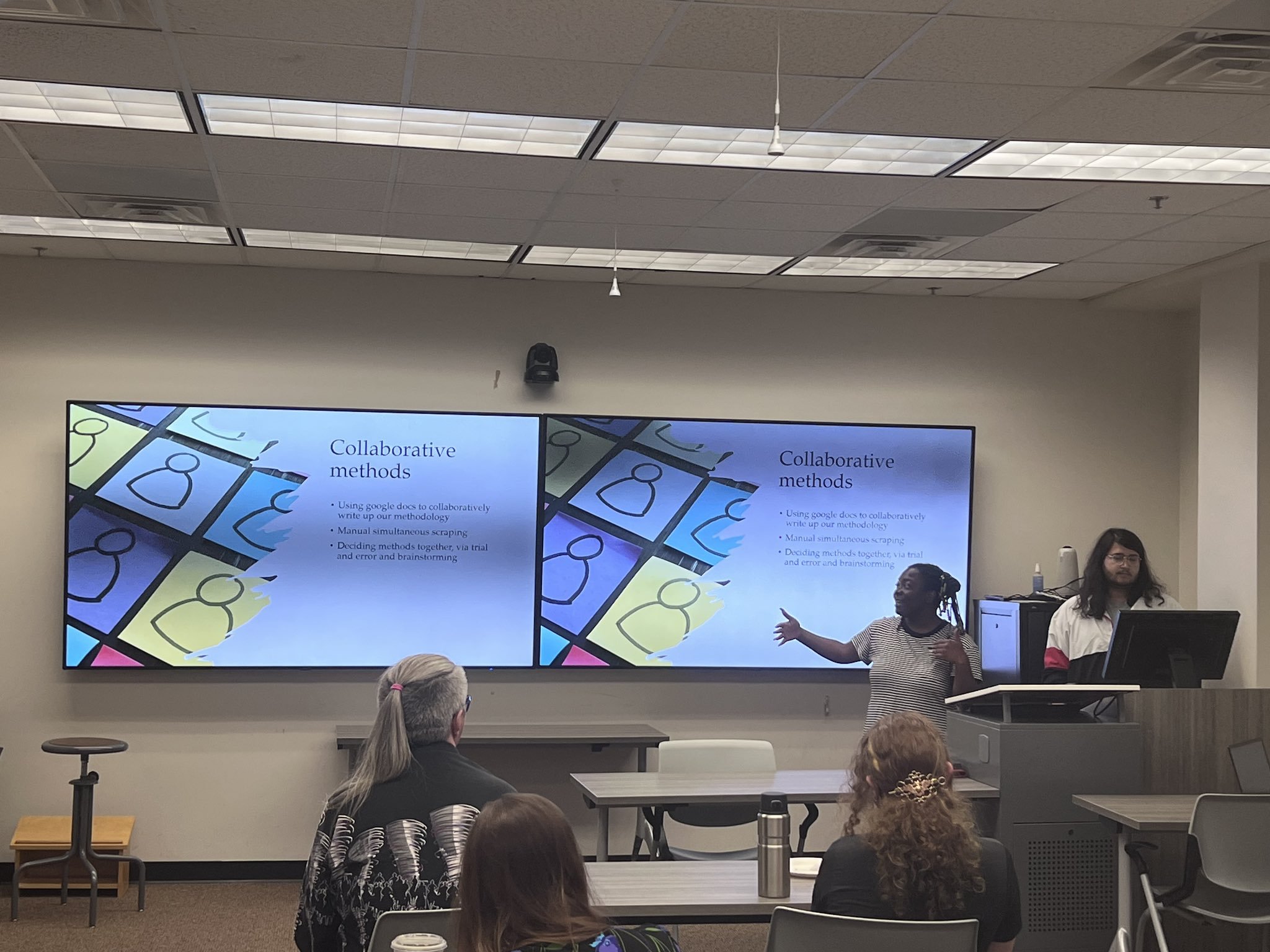Reflections on the black digital migration Project
Each year the Black Communication and Technology (BCaT) conducts collaborative projects that examines the intersections between Black culture, digital technologies, and rhetorical imaginations. Dr. Rianna Walcott led 2023’s compelling BCaT collaboration with insights on digital Black migrations, which seeks to reimagine what informs Black users mobilities to other platforms when significant changes are made to apps that impact their user experience. In light of Elon Musk’s recent acquisition of Twitter, the lab explored the migration practices of Black social media users as they engage with ongoing manipulations of the app. We began with the concept of ‘digital alchemy’ as introduced by Dr. Moya Bailey, which indicates how Black women and Black nonbinary, agender users transform everyday digital practices into valuable tools of social justice. We are curious about the conditions that inform whether Black digital users are choosing to leave or stay on the app, even while their contributions to the practices of Black Twitter remain at the forefront and in the background.
As with the Great Migration, when over six millions Black Americans migrated from the South to the North, Midwest, and West, we are observing similar patterns in digital spaces where Black users are leaving the app, replacing the app with other platforms such as Mastodon, Instagram, or TikTok, or staying on the app while actively confronting the changes made to the platform. We held biweekly meetings in the BCaT where our team engaged in collaborative research experiences. Due to the changes in access to Twitter's API, we could not collect data using computational approaches such as TAGS or DocNow. Instead, we created a news media timeline and term bank related to Black users discourse about changes on the app, which then allowed us to manually collect texts that signified practices of Black migration. Our process required intensive training in how to scrape social media and use Tableau, brainstorming on the limitations of our methods, and strategizing on how to respond to the alterations made on the app.
On May 8, 2023 The BCaT lab was invited to present at the Center for Archival Futures Endeavors (CAFe) Graduate Research Symposium and iLab Mixer at the University of Maryland. Doctoral student and BCaT fellow Tynesha McCullers and incoming graduate student Andrew Clarence Lowe Mohammed presented “Platform versus the People” about our collaborative project on digital Black migration. We discussed the term bank and timeline, collaborative methods, and some of the progress we made thus far along with struggles of this research experience. Presenters remarked that it was very exciting to share some of the research happening in the lab and to learn about other research projects on campus.
In the following academic year of 2023-2024, the BCaT collaborative project will continue because we are not finished yet, however, we got to READ! We want to become more familiar with the history of Black migration and the prominent rhetorical framing of these mobilities that occurred after the Civil War and during Reconstruction. We were inspired by a visit from Dr. Kenton Rambsy from the University of Texas in March, presented a colloquium “The Promise of Data Storytelling” and hosted a workshop on how to use Tableau for graph visualization with examples from Black Literature Network. Data storytelling is a valuable technique that uses computational approaches to compile data on popular novels, photographs, and other texts by Black authors for the purpose of data visualization and analyzing network data. Familiarizing ourselves with this data storytelling tool is important to our project’s purpose of making visible stories of digital Black migrations that might otherwise go unnoticed. Visually sharing stories of digital Black migration through scatter plots, bar charts, line graphs and other chart types will contribute to our data narrative. Our project will also include interviews with IRB approval to conduct oral histories from certain Black Twitter users such as stakeholders, journalists, and academics. Lastly, the BCaT lab will host podcasts that will broadly discuss what is happening in the lab, popular culture, education, and have a few episodes dedicated to the collaborative project.
Written by Alisa Hardy and Tynesha McCullers


